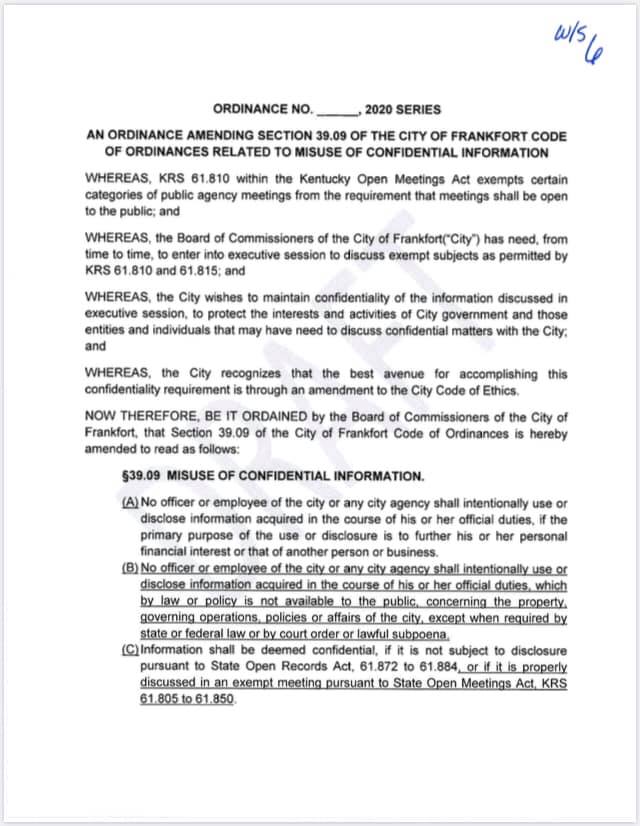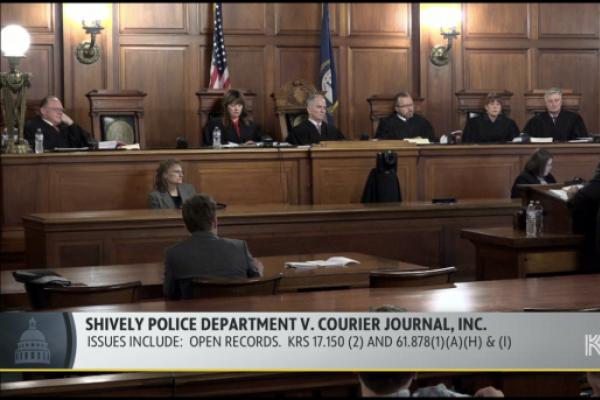
A few thoughts on the proposed amendment to Section 39.09 of the Frankfort Code of Ordinances "to prohibit intentional use or disclosure of information which by law or policy is not available to the public."
The proposed amendment prohibits a city officer or employee from intentionally disclosing or using information acquired in the course of his or her duties "which by law or policy is not available to the public concerning the property, governing operations, policies or affairs of the city except when required by state or federal law or be court order or lawful subpoena."
•There is an internal inconsistency between the concept of information "which by law or policy is not available to the public" and information required to be disclosed "by state or federal law." How can information be both unavailable by law or policy and mandatorily available by state or federal law?
•The ambiguity of the language: "property, governing operations, policies, or affairs of the city" is deeply troubling. I'm no expert on drafting ordinances, but this strikes me as potentially void for vagueness. To what does each term refer (especially the latter three and even more especially "affairs of the city").
•"Policy" cannot make information exempt. Only the open records law and state and federal confidentiality provisions can foreclose access to public information. Were it otherwise, public agencies could restrict access to "uncomfortable" information by policy. Can't do it—never could. And an ordinance does not give the city the license to do so.
(I spent 25 years resolving disputes about what is and is not protected information—it is very often a difficult call and by no means black and white).
•As a general precept, the exceptions to the open records and meetings laws are permissive—not mandatory. They are available to agencies/officials if they wish to withhold sensitive information or prefer to discuss sensitive information in closed session. They are "a shield and not a shackle." To frame an ordinance in terms of records/discussions "not subject to disclosure" *in the absolute* is contrary to the spirit and letter of the open records and meetings law.
•*Responsible* stewardship of public information by *all* elected and appointed officials and employees is what is needed here. Not a gag order.



